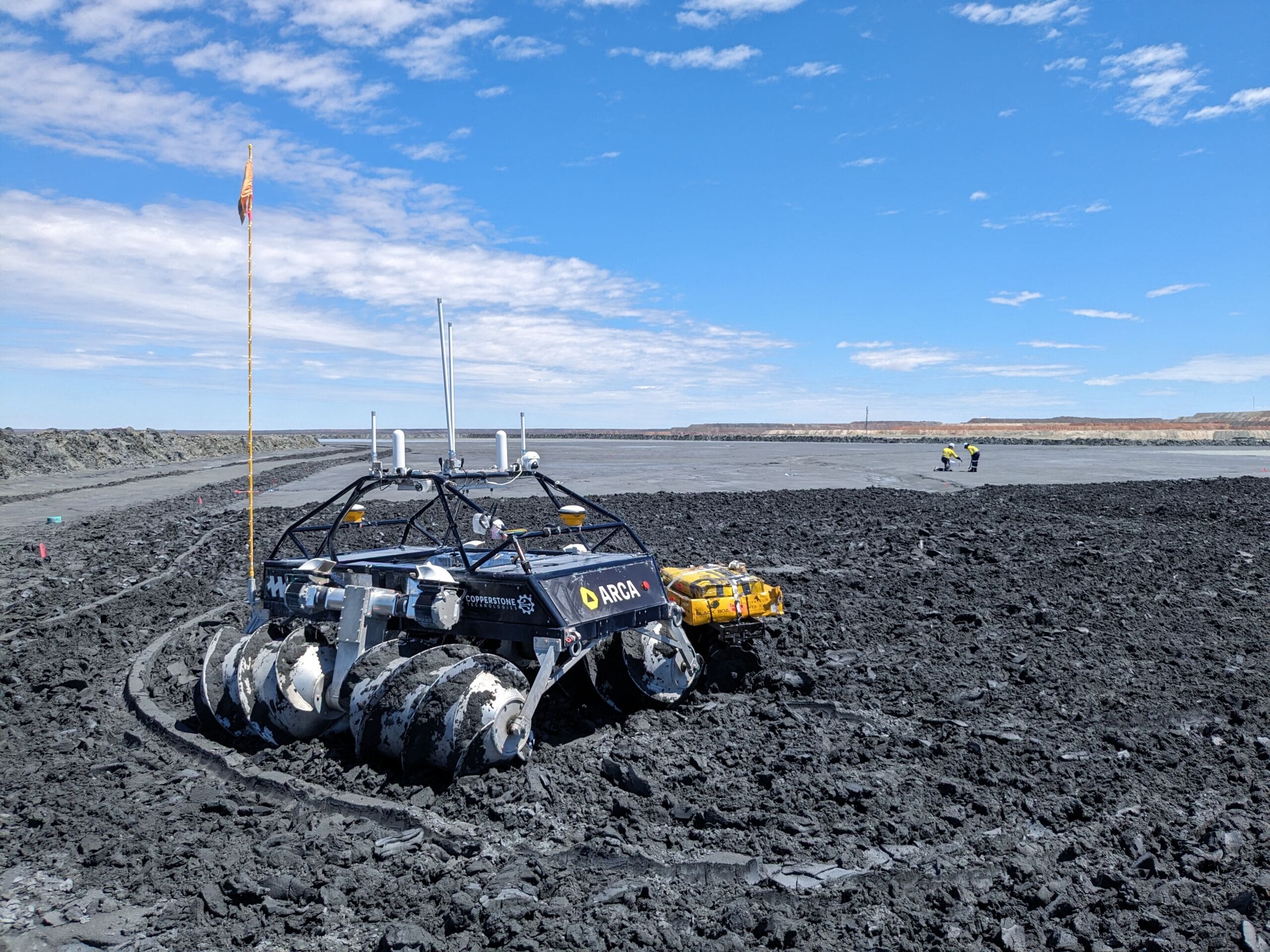This Canadian startup is removing carbon from the air with rocks - and creating environmentally sustainable jobs
Why It Matters
Specialized banking can help overcome the early-stage funding challenges that many clean technologies face and can help showcase financial partners' roles in climate solutions. These collaborations are critical to supporting the innovation needed to help address the climate crisis.

This story was produced thanks to a partnership between Future of Good and RBC. RBC is proud to support a broad range of community initiatives through donations, community investments and employee volunteer activities. See how at rbc.com/peopleandplanet. See FOG’s editorial ethics and standards here.
The inventors of Vancouver-based Arca took nearly 15 years to bring their carbon dioxide removal technology to market in Canada.
The industry simply wasn’t ready in 2007, but co-founder Bethany Ladd said by 2021, things finally changed.
“We are talking about a pretty new industry, but there’s a ton of opportunity here,” said Ladd.
Arca works with mining companies and steel producers to remove carbon directly from the atmosphere to mitigate its impact on our climate.
“Our technology is based on a natural process called carbon mineralization. We transform CO2 into rock where it is stored forever,” she said.
Clean technology, often called cleantech, are solutions designed to reduce pollution and environmental impact.
While it isn’t a new concept, cleantech has gained momentum as the impacts of climate change have become more visible, costly, and widespread.
Globally, 2024 was the hottest year on record, while Canada is warming twice as fast as the global average.
Scientists believe up to 10 billion tonnes of CO2 must be removed annually by 2050 to limit global warming to 1.5 degrees.
“Unfortunately, we already have too much CO2 in the atmosphere,” said Ladd.
“Even if we were to drastically reduce our emissions today, we still have a problem on our hands and that’s where carbon dioxide removal comes in,” she said.
As clean technologies gain momentum in Canada and worldwide, so has Arca.
Acra collaborates with RBCx to scale up
The company turned to RBCx, RBC’s innovation and tech branch, for support in accelerating its growth.
“Cleantech is quite different than a traditional tech startup; there’s higher capital expenditures, sometimes longer sale cycles, maybe there’s policy initiatives that drive adoption,” said Jeannette Jackson, national director of cleantech at RBCx.
RBCx is designed to help Canadian tech companies grow by providing business support, banking, investment advice, and venture capital.
“We help the companies early on make sure that they’re presenting their value proposition, their business case, their own order market strategies, how are they actually going to engage paying customers,” said Jackson.
Support from RBCx plays an important role, especially when some investors are sometimes cautious about the longer timelines associated with cleantech, said Ladd.
“We are pretty niche. It’s been pretty cool that our banking partners have been so interested,” Ladd said. “Both on the day-to-day banking side and then on the business development and future looking side.”
Supporting cleantech innovation in a time of funding gaps
Sustainable Development Technology Canada, a government foundation created to fund emerging clean technologies, was shut down last year, which left a significant funding gap for cleantech startups.
Finding venture capital for cleantech can be one of the biggest hurdles, said Anthony DeOrsey.
“I don’t see anything in our day-to-day work where we say there is no technical solution to (the climate crisis),” said DeOrsey, research manager of Cleantech Group.
“It’s much more so around, how do these technologies get to cost parity and to scale?”
The risk of companies investing in cleantech is still prevalent.
But even with that hurdle, Canada is in a strong position, he said.
“Canada had seen around $500 million of venture capital invested in their cleantech companies in the first half of this year, around 2.5 per cent of the global total, and Canada is only .5 per cent of the world’s population,” said DeOrsey.
As the world moves toward a greener future, Canada is proving to be a leader in clean technology innovation, balancing economic growth with environmental responsibility, said DeOrsey.
“If you look at technologies coming out of Canada, we’ve seen pretty decent strength in some of the industries that Canada already has some type of advantage in. “
“If I were to point to one right now, it would definitely be in mining.”
To help cleantech businesses get off the ground, more easily accessible grants are needed, he said.
“Not everything is going to be market-ready initially. You need some way to give folks an opportunity to go and experiment with technology.
“To whatever extent you can go and generate learning effects in the field, I think that’s where much of this technology just sees an accelerant.”
Mentorship at MaRs
While clean tech companies face unique hurdles to get off the ground, organizations like Toronto’s MaRs Discovery District are helping.
MaRS is one of North America’s largest non-profit innovation hubs, supporting early-stage cleantech startups.
“It’s really hard to gain traction when it comes to adoption of new innovation,” said Tyler Hamilton, senior director of climate at MaRs.
“We bring together industry coalitions, different stakeholders from across industry to talk through what are some of the challenges they’re facing and find alignment around common challenges and then come up with solutions together,” said Hamilton.
Through programs like the RBC Women in Cleantech Accelerator and Mission from MaRs, the organization provides entrepreneurs with access to mentorship, investor networks, and international market opportunities.
The mentorships are especially important in the cleantech space, where navigating policies, scaling innovations, and securing funding can be difficult.
“The fact is that there is a lot of capital out there to be spent and climate change is not going away,” said Hamilton.
“The need for new solutions is going to be constant. We think Canadian companies are well-positioned to take advantage of that.”
At Arca, Ladd agreed, noting that building a company in a capital-intensive sector tied to traditional industries like mining, makes support essential – not just for Arca but for Canada’s cleantech future.
“We still have a long way to go, but we are hopeful,” Ladd said.

